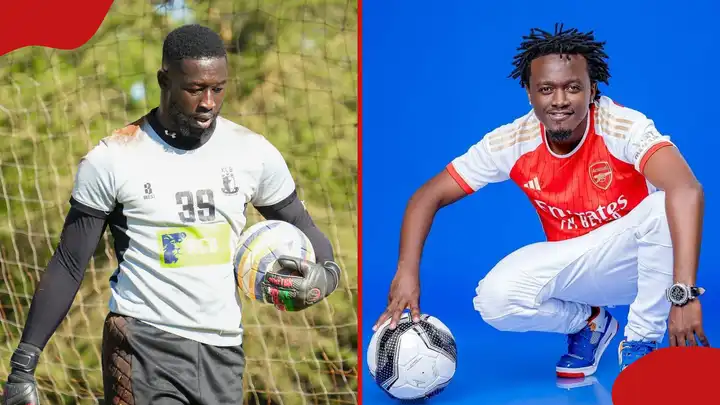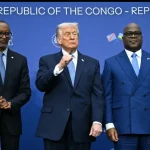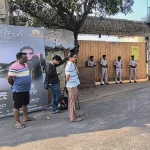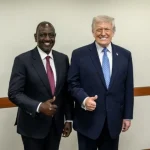When Kenyan musician Bahati stood before cameras during the CHAN 2024 tournament and pledged Ksh 1 million to the Harambee Stars for a potential victory against Morocco, it felt like a magical moment of national unity. Here was one of Kenya’s biggest musical stars throwing his weight behind the national team, promising substantial financial reward for what would be a historic achievement. The promise generated headlines, created buzz on social media, and gave fans an extra reason to cheer. For the players, including goalkeeper Farouk Shikalo, it was more than just a potential financial windfall; it was a powerful gesture of support from a fellow Kenyan public figure, a validation of their hard work and sacrifice on the national stage.
The team fought valiantly, and while they didn’t secure the win against Morocco, their overall performance and spirit throughout the tournament were widely praised. As the cheers faded and the players returned to their clubs, the memory of Bahati’s pledge lingered—not as a forgotten footnote, but as an unfulfilled promise that began to fester. For months, there was silence. No payment, no communication, and no explanation. What began as a gesture of support slowly transformed into a source of frustration and disillusionment for the very athletes it was meant to inspire.
The silence was finally broken not by the musician, but by the goalkeeper. Farouk Shikalo, in a moment of raw candor, publicly lashed out at Bahati, accusing him of the ultimate betrayal in the modern age: “clout chasing.” In Shikalo’s view, and in the view of many who have followed this saga, the pledge was never about genuine support for the team. It was, as he bluntly put it, “mdomo tuu… alitafuta kiki tu” – just talk, an opportunity for the artist to grab headlines and generate social media engagement (“kiki”) at the expense of the players’ emotions. This cuts to the heart of the matter far deeper than the money itself. For professional athletes who dedicate their lives to their craft, having their efforts used as a publicity stunt feels profoundly disrespectful. It reduces their sweat and sacrifice to a mere marketing opportunity.
Bahati’s defense, when it came, did little to quell the criticism. Citing a busy schedule with his son’s birthday and unresponsive football officials, his explanations rang hollow for many. The situation escalated when, instead of a quiet resolution, the artist flaunted large amounts of cash in online videos, dismissively referring to Ksh 1 million as “small money.” This act, perceived as tone-deaf and boastful, poured gasoline on the fire. It was no longer just about a broken pledge; it was about a glaring lack of empathy and a public display of wealth that seemed to mock the players who felt wronged. Media personality Fred Arocho added fuel to the fire, confirming he had tried to mediate and that Bahati had become unresponsive.
The saga of Bahati’s Ksh 1 million pledge is a modern cautionary tale. It highlights the fragile relationship between celebrity, sport, and public trust. In an era where public pledges are instantly broadcast to millions, accountability becomes paramount. This incident forces us to ask a critical question: when public figures make grand promises, are they making a genuine commitment to a cause, or are they simply engaging in a transactional exchange—trading a promise for temporary relevance? For Farouk Shikalo and the Harambee Stars, the answer seems painfully clear. The broken promise is a stain on what should have been a proud chapter, a lesson in the empty echo of words without action, and a reminder that the respect of athletes is earned through integrity, not just Instagram likes.










